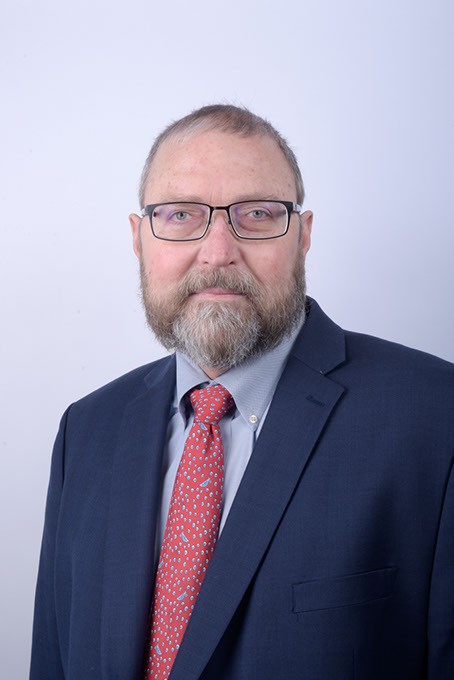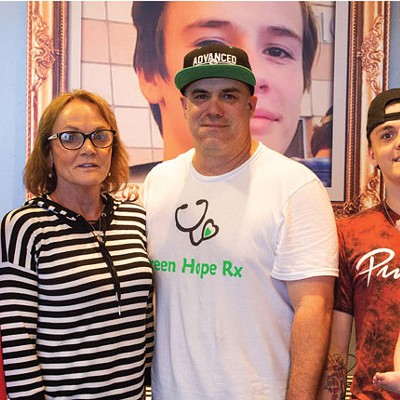Serving on the front lines of poverty, public health nurses and social workers are determined to reduce the incidence of obesity, diabetes, heart disease, tobacco use and more.
Poverty has devastating consequences on physical and mental health. There is a well-documented connection between socioeconomic status and health.
“If you don’t have a roof over your head or you don’t know where your food will come from, you really can’t focus on anything else,” said Patrick McGough, Oklahoma City-County Health Department (OCCHD) deputy director.
At OCCHD campuses, health care workers struggled daily to treat patients and provide case management to those suffering the health consequences of poverty.
Before, there were few options for a patient suffering asthma resulting from perpetually inhabitable housing, an insurance company denying a prescription or a family on the edge of poverty that was refused governmental benefits for their children.
Now, OCCHD nurses, social workers and community health workers lead patients down the hall for a different kind of help. In November, the health department and Legal Aid Services of Oklahoma began a legal-medical partnership and placed an attorney inside the state’s largest county health department to assist patients.
Though new to Oklahoma County, legal-medical partnerships are a common practice across the country.
Attorneys combat health issues on a legal level, cutting down unnecessary patient visits and producing health care cost savings.
At the same time, the legal-medical approach is a meaningful strategy to those suffering, meeting their basic needs and, at times, reversing negative health outcomes.
Legal prescription
Seated in his new office located at OCCHD South Health Clinic, close to the intersection of SW 59th Street and Pennsylvania Avenue, attorney Andrew Tevington described a recent referral from one of Oklahoma County’s Women, Infants, and Children (WIC) clinics.
A nursing mom was denied breastfeeding benefits, such as a breast pump, by her insurance company.
“Sometimes I might have to go to court, but most of the time, this work never involves showing up at a courthouse,” the attorney with 31 years of legal experience said. “Often, people just need to know the right place to go.”
Recruited from Legal Aid’s Ardmore office where a similar partnership was underway at Mercy Hospital Ardmore, Tevington entered his new role a witness to the success of the approach, which earned the endorsement of the American Bar Association in a 2007 resolution.
‘Legal professionals are encouraged to work with the health care community and social services organization “to identify and resolve legal issues that have a detrimental effect on health and well-being.”
Funding for the partnership comes from a $50,000 one-year grant from Telligen Community Initiative, a private nonprofit foundation that supports innovative health programs.
On weekdays, Tevington splits his time between two OCCHD campuses as he meets with low-income, uninsured or underinsured patients and their families.
In addition to the south location, Tevington offices Mondays, Wednesdays and Fridays at Northeast Regional Health and Wellness Campus, 2600 NE 63rd St. The health department’s nurses, community health workers and social workers send referrals, but at times, a patient is simply sent down a hallway to Tevington for legal help.
With just two months serving at the health department, Tevington confronts health issues patients experience that result from unenforced laws or denial of vital services. Legal challenges include mortgage foreclosures, loss of benefits, child custody, Medicaid payments and domestic violence issues.
He predicts his work will lead to many landlords coming into compliance with housing code standards, removing mold, cockroaches and rodents, which can cause asthma, allergies or migraines.
“Most of these people would otherwise not have access to a lawyer or receive any kind of legal help,” Tevington said. “They don’t know how to navigate the legal system. I am able to provide assistance to take care of these problems.”
Growing partners
In recent years, to fulfill the vision of OCCHD — “Working with the community for a healthy future” — leaders have forged collaborations across communities and industries to build a health department “protecting health, promoting wellness and preventing disease.”
Through community partnerships with Regional Food Bank of Oklahoma, YWCA Oklahoma City, OU Physicians and more, OCCHD offers the services of a traditional health department and establishes a modern approach to public health by offering an array of services to county residents.
Legal Aid Services of Oklahoma is the latest on a growing list of partners, McGough said.
“This is one more piece of the puzzle for providing holistic care and putting people back in charge of their lives,” McGough said.
With legal-medical partnerships at OCCHD in their infancy, leaders suggest it’s too early to gauge the impact on patients and the greater community.
However, both McGough and Tevington attest that when medical and legal professionals combine forces to help low-income people struggling with health problems and overwhelmed by daily life, they can make a difference.
“Once people can stop being stressed and worried over legal issues,” McGough said, “they can truly focus on their health issues.”
Print headline: Legal approach, Legal Aid Services of Oklahoma partners with Oklahoma City-County Health Department to support patient needs, achieve health equity and address social barriers to care.












